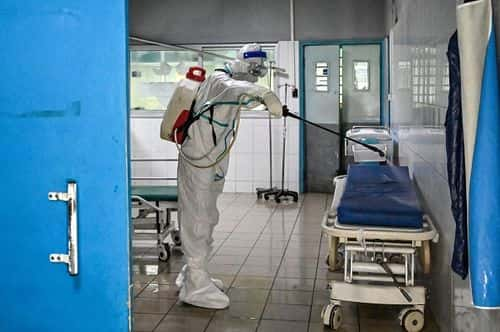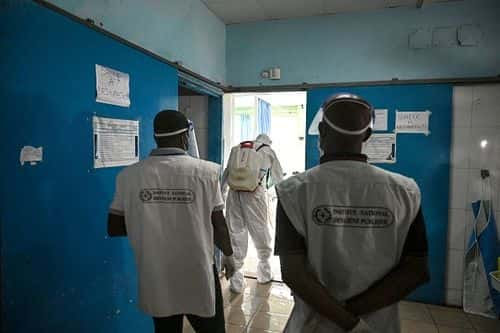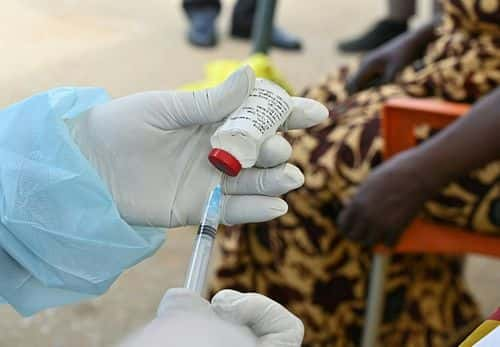Deadly new strain of Ebola renders existing vaccines useless as health workers put on high alert

UGANDA, AFRICA: The health workers in Uganda are working towards containing a dangerous strain of the Ebola virus. The new strain is spreading in some specific areas of the country and has caused 35 confirmed infections and seven deaths, reports The New York Times.
The new strain of virus is called Sudan Ebolavirus. However, it is not curable with the existing vaccines as the new variant is different from the old one. There are no vaccines or treatments for it as of now. According to reports, the current vaccines are targeting the Zaire Ebolavirus and not Sudan Ebolavirus
ALSO READ
What is SHFV? Scientists warn of deadly Ebola-like virus that could make jump from monkeys to humans
There is one vaccine from Johnson & Johnson that could prove to be effective against the new strain however it is not yet clinically approved. “The whole situation gives me a lot of worry,” Yonas Tegegn Woldemariam, the World Health Organization’s representative to Uganda, said in a phone interview with The New York Times. President Yoweri Museveni claimed in a televised speech, “There is no need for anxiety, panic, restriction of movements or unnecessary closure of public places." The Sudan strain of the virus was last detected by Uganda in 2012. The incubation period of the disease is from two to twenty-one days.

The travelers from Uganda are being tested across the borders of Congo, Kenya, Rwanda, and South Sudan for Ebola symptoms which include fever, vomiting, headaches, and fatigue. According to Insider.com, World Health Organization claims that the fatality rate for Sudan Ebolavirus can range anywhere from 41% to 100%. However, the organization also hopes that the new strain is not as deadly or dangerous as the Zaire Ebolavirus that existing vaccines can prevent — but it is still very fatal.

Authorities have also requested not to shake hands or involve in less physical touch as ebola can easily spread through touch, or contact with bodily fluids including saliva, blood, vomit, semen, and urine. Most outbreaks in recent years, including the 2014-16 epidemic killed more than 11,000 people across West Africa. However, those were caused by the Zaire strain of Ebola. “This is another wake-up call for the international community, the medical community has to keep working on vaccines and therapeutics that work on multiple strains, not just a single strain, ready for the next outbreak," claimed Kartik Chandran, a virologist at the Albert Einstein College of Medicine who has been researching about treatment strategies for Ebola virus to WSJ.

Two aspects that are actually concerning about the treatment for the recent strain of the virus is that the rapid tests which are used to quickly diagnose patients showing Ebola symptoms cannot diagnose the new variant. Also, after COVID, the economy and budget cuts in the health sector have weakened the country’s health system. “There is a lot of misinformation about health facilities, our target now is to educate the community so that they understand the disease better," said Dr Byabasaija to WSJ.
Meanwhile, “This is a disease that has a very high fatality rate, government should find the resources and provide the facilities that health workers rightly deserve," said Samuel Oledo, president of the Ugandan Medical Association. However, Uganda is currently facing a shortage in the number of health workers and some of the trainee medical workers are currently on strike due to low wages and restricting Ebola allowances.